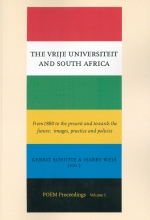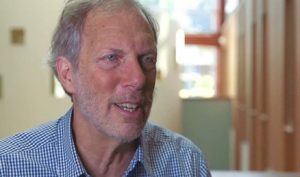How To Generate Job Growth: Robert Pollin On Alternatives To Trump’s Smoke-And-Mirrors Economic Plan
Trump made specific promises to many of the voters who were instrumental in getting him elected — some of whom are people living in poverty, thanks in part to the impacts of globalization. Yet, his economic plan will do nothing for most Americans, argues Robert Pollin, distinguished professor of economics and codirector of the Political Economy Research Institute at the University of Massachusetts at Amherst, in an exclusive interview for Truthout. Instead, Pollin says, Trump’s plans will make the rich richer. What should we be doing instead? Pollin lays out the reality, explaining that an economic plan that will increase employment, provide higher wages and protect the environment requires, among other things, an industrial policy, increasing the minimum wage, strengthening unions and implementing a Green New Deal agenda.
C.J. Polychroniou: Trump’s economic plan is supposedly about “making America great again.” We know that his tax cuts and deregulation proposals will be an extra bonus for the big corporations and the super-rich, but what’s in it for the average American worker who has been experiencing stagnant wages for the past 40 years, economic insecurity, and a declining standard of living?
Robert Pollin: Trump won the election in large part because he spoke to the visceral anger within the US [white] working class over the conditions you describe — two generations in which average working-class incomes have stagnated while inequality has soared, millions of good manufacturing jobs have been lost and strong communities have been brought down. But it wasn’t just that Trump recognized this anger. It was equally that, for a generation, the Clinton Democrats have been the party of Wall Street and free trade, while their support for the US working class has been tepid and back-handed.
Of course, the fact that Trump spoke to this [white] working class anger doesn’t mean that he actually cares about the US working class, or, more importantly, that he has a program that will deliver rising well-being for them. Some of Trump’s key proposals are to: 1) bring back manufacturing jobs by eliminating burdensome regulations on business and fight against unfair foreign competition, especially from China; 2) stimulate jobs, especially in construction, through a huge infrastructure investment program; and 3) deport undocumented workers, who Trump says are stealing US-born workers’ jobs. Read more
Neoliberalism In The Driver’s Seat: Trump And Ryan’s Ruling-Class Schemes
 Donald Trump ran a campaign to “make America great again,” promising the creation of high-paid manufacturing jobs and the restoration of the middle class. Yet, his economic policies will most likely make things worse for average American workers and deal a further blow to the environment, says economist Michael Meeropol, an NPR commentator and author of Surrender: How the Clinton Administration Completed the Reagan Revolution. Michael Meeropol is the oldest son of Julius and Ethel Rosenberg.
Donald Trump ran a campaign to “make America great again,” promising the creation of high-paid manufacturing jobs and the restoration of the middle class. Yet, his economic policies will most likely make things worse for average American workers and deal a further blow to the environment, says economist Michael Meeropol, an NPR commentator and author of Surrender: How the Clinton Administration Completed the Reagan Revolution. Michael Meeropol is the oldest son of Julius and Ethel Rosenberg.
C.J. Polychroniou: Donald Trump’s economic policies are not simply controversial; they constitute a neoliberal nightmare. His policies revolve mostly around corporate tax cuts, tax cuts for people with high incomes and investments, deregulation and selective protectionism. Assuming the Trump administration can succeed with these objectives, what, in your view, would be the most likely effects of these policies on the US economy?
Michael Meeropol: It is essential to separate Trump (the man) from the policies proposed by the Trump administration. Trump, the man, displays “bright shiny objects” that unfortunately divert us from the substance of the actual policies…. The national media and too many of the opposition are diverted by his outrageous lies, his grandiose promises, his bombast and his dangerous authoritarianism. These are the “bright shiny objects” but they have almost nothing to do with the substance of [his] proposed policies.
Your question brings focus where it should be — the neoliberal content of his administration’s proposals. With the possible exception of the selective protectionism he promised during the campaign, [his] economic policy proposals are extensions of traditional neoliberal policies that date back to Ronald Reagan. These policies were enabled by Bill Clinton (see my book Surrender and Bob Pollin’s book Contours of Descent), expanded by George W. Bush and not forcefully countered by Barack Obama. The failure to include a public option in the Affordable Care Act is one glaring example.
The neoliberal content of the Trump administration’s policies comes from Paul Ryan, the Club for Growth, the Heritage Foundation, the Chamber of Commerce … this is the policy-planning apparatus of the American ruling class.
(Anyone who doubts what I just said, check out the Who Rules America? website. G. William Domhoff has been documenting who rules America since the late 1960s. Here is a recent piece with relevance today.)
In a recent Washington Post article, the first round of proposed budget shifting by the Trump administration is detailed — a massive transfer of discretionary budget spending to defense and away from everything else. This is more extreme than the 1981 Reagan budget proposals. The failed “repeal and replace” for the Affordable Care Act was similar to efforts proposed in the past — partial privatization of Social Security — replacing the guarantees of Medicare with vouchers (called “premium support” in one of the “Ryan budgets” proposed during the Obama Administration). “Welfare reform” signed into law by Bill Clinton turned the old AFDC [Aid to Families with Dependent Children] program into a set of fixed block grants to the states. Changing Medicaid from a guarantee to a state-administered stingy block grant as in the failed Ryan “Trumpcare” proposal would have a similar impact — reducing enrollment in one more means-tested entitlement program. All of these changes were efforts to dismantle the set of policies associated with the New Deal and Great Society.
Read more
The Vrije Universiteit And South Africa, From 1880 To The Present And Towards The Future: Images, Practice And Policies ~ Contents
 SAVUSA POEM Proceedings, Volume 1 – Rozenberg Publishers 2005 – ISBN 90 5170 587 5 – Soon complete online
SAVUSA POEM Proceedings, Volume 1 – Rozenberg Publishers 2005 – ISBN 90 5170 587 5 – Soon complete online
Contents
Part I: – The history of the relationship between the Vrije Universiteit and South Africa
* Introduction – Gerrit Schutte & Harry Wels
* The Vrije Universiteit & South Africa: 125 years of sentiments and good faith – Gerrit Schutte
* The Vrije Universiteit and South Africa since 1972: Political and organisational developments – Harry Brinkman
* Can ‘new’ meet ‘old’? VU-South Africa, 1976-present: Development cooperation in Southern Africa – Kees van Dongen & Leo de Feiter
Part II: A ‘new’ science for a ‘new’ South Africa: four current academic projects
* A ‘new’ history for a ‘new’ South Africa – Gerrit Schutte
* ANNA and a ‘new’ lexicography for South Africa – Willy Martin
* A ‘new’ literature – Ena Jansen
* A new size of theology for a new South Africa – Bram van de Beek
Part III: A ‘new’ science for a ‘new’ South Africa: Reflections
* South Africa-VU: The meaning of traditions for future VU-policy in South Africa? – Carools Reineke
* Some trends in South African academic history: Changing contexts and challenges – Albert Grundlingh
* Political studies in South Africa. A personal perspective – Tom Lodge
* Stimulating research futures – Tessa Marcus
* International R&D cooperation with South Africa – Selected policy perspectives – Hendrik C. Marais’
* ‘New’ scientific practice in South Africa with special reference to land reform – Flip Smit
* The changing Higher Education landscape in South Africa – Daniel Ncayiyana
* Good neighbours and far friends; The Netherlands, Europe and South Africa – Peter Nijkamp
The History Of The Relationship Between The Vrije Universiteit And South Africa: Introduction
SAVUSA POEM Proceedings. Rozenberg Publishers 2005 – ISBN 90 5170 587 5
Introduction
In 2005 the Vrije Universiteit Amsterdam (VU) celebrates its 125th anniversary. It is a celebration in style: a yearlong programme which contains both scholarly elements – every faculty for instance has been asked to organise an international conference in a particular month of the lustrum year around a specific and fitting theme – and festive elements, like for instance an alumni-day ending with a concert of the world famous Portuguese singer Christina Branco. The celebrations are accompanied by the publication of a number of commissioned books about various historical aspects of 125 years of Vrije Universiteit Amsterdam. One of them is a study of the relations between the Vrije Universiteit Amsterdam and South Africa. This relationship dates back to the very beginning of the VU in 1880 – the year in which the First Anglo-Boer War started! The University History Committee asked historian Prof. G.J. Schutte to write this book, entitled De VU en Zuid-Afrika, 1880-2005.[i] The book has been published in December 2005.
In the book Prof. Schutte tells in detail the history of the relationship between the VU and South Africa. This relationship started 125 years ago, in 1880, as a result of the rediscovery by the Dutch of their Afrikaner broedervolk, and a kindred feeling of stamverwantschap (kinship) with the young nation of the Dutch Afrikaners, that was cherished for many decades. The Dutch ardently supported the Boer Republic’s struggle against British imperialism during the Anglo-Boer War of 1899-1902, and also the resulting movement for cultural, social and political emancipation of the Afrikaner people. For the VU academics, this affinity contained an extra value, that of sharing a common religion with the Afrikaners, a common Calvinist tradition and conviction. From 1900 onwards, the VU played an important role as alma mater for generations of Afrikaners, especially for theologians of the Nederduitse Gereformeerde Kerk and the Gereformeerde Kerk. The academic knowledge that was acquired at the VU, was used to develop the South African universities (Stellenbosch and Potchefstroom, and many more) and Afrikaner society and culture.
In about 1960, a new period in VU history was set in motion. A gradual movement away from Kuyperian tradition and the closed group of ‘Calvinists’ could be observed. Critical remarks were made with regard to Kuyper’s Encyclopedia, his philosophy of science, his political and social principles and practice (‘pillarisation’). A new stance was taken on the role of the Christian in society, also in matters of colonialism, racism and the relationship between the First and the Third World. The general western urge for democratisation in those years triggered a change in the ideas on academic education, research and academic policy. The VU, though known for its classical and sometimes patriarchical education system, had since its founding been conscious of its being indebted to the emancipation of the kleine luyden (‘common people’) and considered social awareness as a principle. Read more
The Vrije Universiteit And South Africa ~ 125 Years Of Sentiments And Good Faith
 This academic year (2005), the Vrije Universiteit enjoys its 125th anniversary.[i] In 1879, a handful of orthodox reformed Dutch gentlemen founded an Association for the advancement of Christian Higher Education, and on 20 October 1880, Abraham Kuyper inaugurated the Vrije Universiteit, Academia libera reformata, by delivering his famous lecture on Sphere Sovereignty, Soevereiniteit in eigen kring.
This academic year (2005), the Vrije Universiteit enjoys its 125th anniversary.[i] In 1879, a handful of orthodox reformed Dutch gentlemen founded an Association for the advancement of Christian Higher Education, and on 20 October 1880, Abraham Kuyper inaugurated the Vrije Universiteit, Academia libera reformata, by delivering his famous lecture on Sphere Sovereignty, Soevereiniteit in eigen kring.
Kuyper was never a very modest man, and he certainly was not inclined to be modest at that moment. The credits of the university he opened, were three faculties, five professors and five students. As an accomplished rhetorician he described it as onze kleine School, met den Universiteitsnaam zelve tot blozens toe verlegen (our small school, blushing to be called a university). This was not meant as an apology, but rather to make a Hegelian turn: the real credits of the VU were written in the Synod of Dordt, its claim to nobility was the courage and moral dedication of its supporters, and its worldwide value and importance (Kuyper 1880). In the Kuyperian world panorama, his University would become the intellectual centre of the international Calvinist world – the academic power-house for all the reformed churches, nations and societies in Europe, America, and the Dutch colonies in the East. And for South Africa, of course.
October 1880: this is also the month in which Piet Cronjé, on behalf of 127 Transvaler burghers, declared to the Landdrost of Potchefstroom that they would no longer pay any taxes to the British government, as that government had illegally annexed and stolen their country (Van Oordt 1898). His language was quite akin to what Abraham Kuyper had written as a commentary on Shepstone’s annexation of the Transvaal in 1877, when he stated in his daily De Standaard: robbery is a sin to the eyes of the Lord, even by a crowned robber.
As a journalist and politician, Kuyper followed the South African developments on a daily basis. He was well-informed about the South African situation. He had met personally with the rising star of the Afrikaner Movement, editor of Die Patriot, chairman of the Genootskap van Regte Afrikaners and founder of the Afrikaner Bond, the Revd. S.J. du Toit. And he was regularly informed by the Revd. Frans Lion Cachet, back in the Netherlands after a stay in South Africa for more than thirty years. Kuyper welcomed Paardekraal and the declaration of independence of the Transvaal Volk. He was very active in the Amsterdam Transvaal Committee and, in May 1881, became one of the founders of a countrywide, lasting pro-Boer organisation, the Nederlands-Zuid-Afrikaanse Vereniging (NZAV). The members of the NZAV consisted mainly of liberals and conservatives and some radicals, such as social-democrats and antirevolutionaries. In close cooperation with S.J. du Toit, now Superintendent of Education in the Transvaal, Kuyper tried to dominate the cooperation with the Transvaal (material aid, advice on the development of the new Afrikaner Republic, emigration), to protect the good orthodoxy of the Transvaalers against the ungodly Dutch liberals – as had happened in the 1870s, when President Burgers – a defrocked liberal DRC (NGK) dominee! – with the help of his liberal Dutch friends had tried to modernise the education and had made a mess of the Transvaal, only to prepare it for annexation by Shepstone! Read more
The Vrije Universiteit And South Africa ~ Political And Organisational Developments
 Introduction
Introduction
In the long history of VU relations with South Africa the year 1992 provided a landmark: the VU came back to South Africa, as a partner of the University of the North (UNIN) in a big pre-entry science project funded by the European Union. UNIN is a so-called historically black university, founded under apartheid policy. In 1992 five VU specialists started working at UNIN, continuing till the end of 1998. After 1992 the cooperation VU-UNIN was extended to other fields, and UNIN is still a main partner of the VU in South Africa.
1992 was two years after the Wende in South Africa, President de Klerk’s transition speech in parliament and the release of his successor, Nelson Mandela, from prison. At last a new South Africa came in sight. The VU was the first Dutch university to re-enter South Africa.
Traditionally relations of the VU with South Africa were based on theology and philosophy. The VU that came back to South Africa in 1992, was a very different university, with strong expertise, many years of experience and a good reputation in development cooperation, mainly built up in countries in southern Africa outside South Africa since 1976.
That change in the VU interface with South Africa is the main theme of my presentation about the period 1972 till the present.
Point of departure in 1972
At the beginning of 1972 the situation at the VU with regard to South Africa had nothing remarkable:
* Contacts were maintained mainly by theologians and philosophers.
* The exchange of professors with the Potchefstroom University for Christian Higher Education, agreed on in 1958, had come to a standstill at the end of the 1960s.
* A general, strong uneasiness about apartheid policy in South Africa prevailed. VU theologian Professor J.H. Bavinck had been one of the first in the Netherlands (1953) to voice basic criticism. Traditional South African VU-partners in theology and philosophy had appeared to be pillars of apartheid ideology.
* With regard to development cooperation frustration was prominent. In the years after the 1961 VU-Corps congress it had been decided that the VU in view of its identity as a Christian university in the modern world would go for development cooperation. Consequently since 1967 a big effort had been made to support the new Université Libre du Congo at Kisangani. This university however had been nationalized and the VU start in development cooperation had turned out to be a failure, though experience had been gained.
* Apart from this, minds and time at the VU in the years before 1972 were fully taken up by tempestuous growth of the university, by building a big modern campus, by a new ecumenical codification of its identity as a Christian university, and by participation in the nationwide movement for democratisation of university governance. Read more



